“Serbia realises that Kosovo is a state”
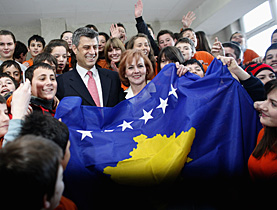
On Tuesday Kosovo celebrates its first birthday. The country's prime minister, Hashim Thaçi, talks to swissinfo about potential teething troubles.
The 40-year-old former political leader of the Kosovo Liberation Army calls on Serbia to recognise Kosovo and is keen to develop diplomatic relations with Belgrade.
Forty-eight countries including the United States and most European Union members have recognised Kosovo since its ethnic Albanian majority declared independence from Serbia on February 17. Serbia and its ally Russia oppose it.
Switzerland recognised Kosovo’s independence on February 27. A month later Swiss Foreign Minister Micheline Calmy-Rey, an outspoken and long-term supporter of independence for Kosovo, opened a Swiss embassy in the capital, Pristina.
swissinfo: The Republic of Kosovo is one year old. How is the baby?
Hashim Thaçi: Growing and getting stronger – it’s very healthy.
swissinfo: But so far recognised by only 54 United Nations member states.
H.T.: First of all I’d like to thank all the countries that have recognised Kosovo. Many countries are in the process of recognising us. I respect how other countries operate.
Most countries have promised to recognise Kosovo, but I can’t give an exact date because the decisions are taken by those countries and are based on national interests.
swissinfo: In October the UN General Assembly in New York approved Serbia’s request to ask a UN court whether Kosovo’s secession was legal. What will you do if it is deemed illegal?
H.T.: I don’t want to interfere with the courts. I don’t want this case to take a political slant. We will respect the decision.
swissinfo: Kosovo’s population is around two million, of whom some 130,000 are Serbs. How do you plan to win their trust?
H.T.: The Serbs belong to the parliament and government that I lead and are part of our society. Their rights are guaranteed and are respected by the constitution. Kosovo is the homeland of all its citizens.
swissinfo: Do you expect Serbs to join Kosovo’s new security forces?
H.T.: Serbs already make up more than six per cent of our security forces. They also work in our secret service and other institutions at all levels.
swissinfo: What do you expect the Serbian government in Belgrade to do now?
H.T.: We would like them to recognise Kosovo as a state as soon as possible. That would be best for peace and stability in the region and best for both countries.
We are prepared to sign bilateral diplomatic relations with Serbia. Pristina would like to have an embassy in Belgrade so that we can function as two normal states.
swissinfo: But is that possible with the current Serbian government?
H.T.: There’s no problem with the government – they want to recognise the Republic of Kosovo – but they are hostage to anti-Albanian views in Belgrade.
swissinfo: You believe the Serbian government is willing to recognise Kosovo?
H.T.: Serbia realises that Kosovo is a state. The day will come when it takes the decision [to recognise Kosovo]. I would welcome this sooner rather than later.
swissinfo: When will you take control of North Kosovo and the northern part of the city of Mitrovica, which are inhabited almost exclusively by Serbs?
H.T.: Eulex [the European Union Rule of Law Mission in Kosovo] now covers all of Kosovo. It is a challenge, but one which can be overcome.
swissinfo: Are you prepared to use force to get back the north of the country?
H.T.: No. Under no circumstances. Any notion of using force to control Mitrovica is far-fetched.
swissinfo: Why not simply let the north go? You would be rid of a big problem.
H.T.: This is not just a question of doing a deal. The future of Mitrovica is the future of Kosovo.
swissinfo: How badly has Kosovo been hit by the financial crisis?
H.T.: Kosovo is not an island – it is part of the global economy. The crisis has already had an effect on our country, above all on Kosovans abroad. But there has also been an impact on foreign investments. The banking system, however, is very stable.
swissinfo: Who is the more important partner for Kosovo: the European Union or the United States?
H.T.: Relations between Pristina and Washington are excellent. I am proud to be the head of the most pro-American country in the world. But Kosovo is part of the European family – we want to become members of the EU and of Nato.
swissinfo: And your bilateral relations with Switzerland?
H.T.: Fantastic. Switzerland was one of the first countries to recognise Kosovo. We have a strong bond with Switzerland.
I lived there myself and have wonderful memories. Perhaps Kosovo will one day become the Switzerland of the region.
swissinfo-interview: Norbert Rütsche in Pristina
Kosovo had been run by the United Nations, backed by Nato troops, since the alliance’s 1999 bombing campaign against Serb forces. It unilaterally declared independence from Serbia on February 17, 2008 after internationally led talks to reach a mutual agreement on its status failed.
Switzerland recognised Kosovo’s independence ten days later. In 2005, it was the first state in the world to call for independence for Kosovo. Today, Switzerland is home to 170,000 to 190,000 Kosovars, about ten per cent of Kosovo’s population. Kosovars are the second largest minority in Switzerland after Germans. About 200 Swiss peacekeepers are stationed in Kosovo.
Switzerland is one of the most important providers of foreign aid to the struggling nation, with about SFr16.5 million ($14.6 million) budgeted for projects there in 2008.
Kosovo had for decades been the poorest part of Yugoslavia and is only slowly recovering from the damage of its 1998-1999 war. Around 40 per cent of its overall population is unemployed.
The country’s development plan for 2008-2011 forecasts a shortfall of €1.4 billion.
Serbia lost control of what was its southern province in 1999, when Nato drove out Serb forces accused of mass killings of civilians in a two-year war on separatist guerrillas.
Landlocked Kosovo faces an uphill battle in getting back on its feet because Serbia, with strong Russian backing, remains vehemently opposed to its split from Belgrade. Serbia recalled its ambassador to Bern when Switzerland opened its Kosovo embassy in March.
Serbia and Russia have vowed to block Kosovo from joining international institutions such as the United Nations through which it could get more funding and aid.
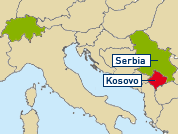

In compliance with the JTI standards
More: SWI swissinfo.ch certified by the Journalism Trust Initiative
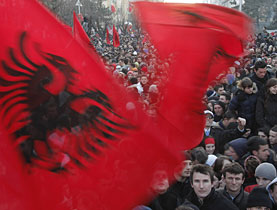
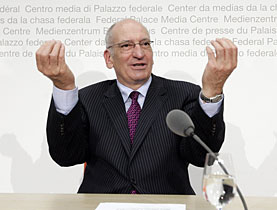
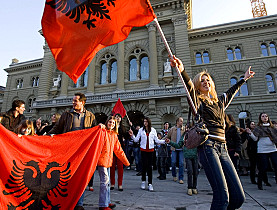
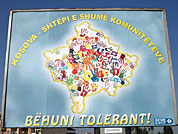
You can find an overview of ongoing debates with our journalists here. Please join us!
If you want to start a conversation about a topic raised in this article or want to report factual errors, email us at english@swissinfo.ch.